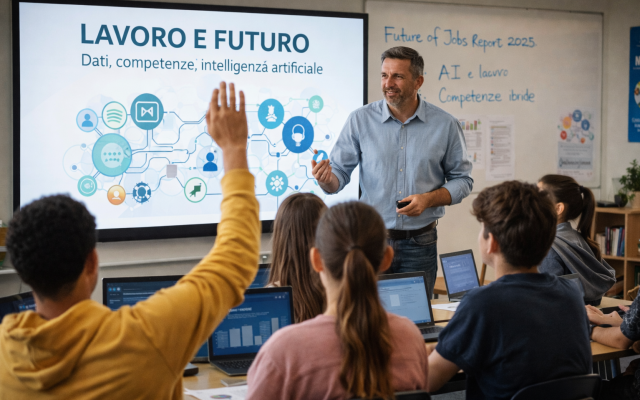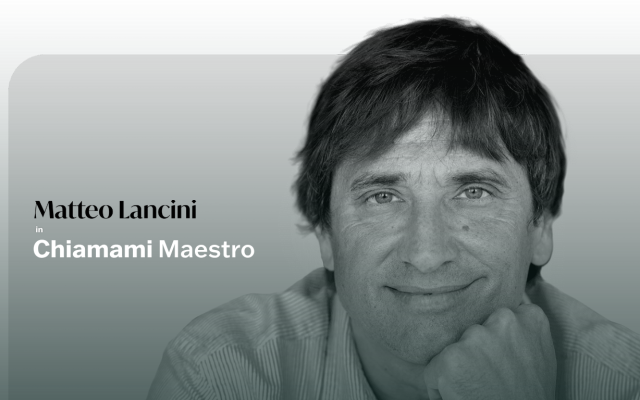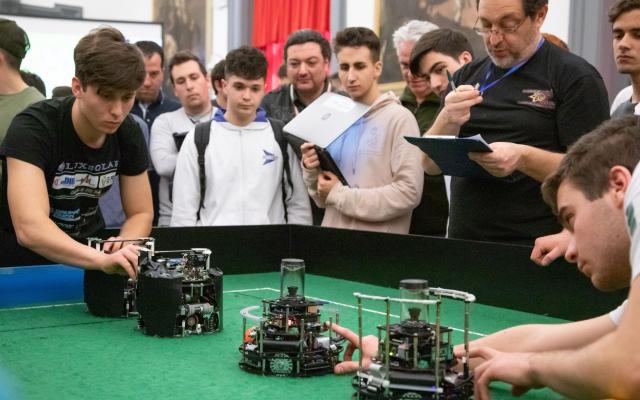Alessandra Sciutti at RomeCup 2025: ‘New models are powerful, but they don't think like us’
In her speech at RomeCup 2025, researcher Alessandra Sciutti, head of the Contact unit at the Italian Institute of Technology, reflects on the gap between the current capabilities of artificial intelligence models and human cognition. From the generalisation of children to the linguistic illusions of chatbots, the researcher invites young people to look beyond the wow effect of technology to develop an intelligence closer to our own. ‘These systems are not a mirror, but an opportunity to better understand who we are.’
We are making this content available to schools so that we can continue to reflect together on the evolution of the relationship between humans and intelligent technologies.
Watch the video of the speech
It is a pleasure for me to be here representing the Italian Institute of Technology. Part of our mission is also to communicate and share what goes on behind the scenes of research, and I work precisely in the fields of robotics, artificial intelligence and human-robot interaction: topics that I am also personally involved in.
I was very struck by the theme of this event: ‘What next?’. It's a question that can mean many things. What lies ahead? What should we do now? Where are we going? Often, to find an answer, we also need to look to the past.
Today, we feel a little overwhelmed by technological progress. Artificial intelligence raises fundamental questions about our future, including our working future. Yet, if we think back to the advent of information technology, there were fears that it would wipe out many jobs. Today, however, it has created new professions that did not exist before or were not even imaginable: think of e-sports and video game development. And these opportunities are more accessible today. My daughter is nine years old and has already done coding at school: once upon a time, that was unthinkable.
So technology opens up possibilities. However, today with artificial intelligence there is a ‘but’. We have powerful new tools, but we often do not yet fully understand how they work. Even we researchers. To quote Tommaso Poggio, it is as if we were at the moment in history when Volta discovered the battery, but before Maxwell formulated the equations of electromagnetism. We have the tool, but we still lack the theory.
This gap also explains why interacting with a chatbot, which seems to speak better than us, is actually an illusion. It is not intelligence like ours: it is something different. It is an ‘alien’ intelligence with similar appearances to ours, but unpredictable behaviour. This is where the so-called ‘hallucinations’ come from. And teaching these systems is much more difficult than teaching a child.
That's why I believe that the future lies in focusing on what these models are currently lacking. Today, they require millions of examples to learn something. A child can learn what a turtle is by seeing just one: then they recognise it in a book, on a toy, in real life. This type of generalisation is lacking in current models.
So we need a new approach: using these tools as a starting point, but going further to develop a cognition more similar to our own.
Question from the moderator: Do you agree that this is the last year in which humanity will be the most intelligent species on Earth?
Sciutti: No, I don't agree, because there is no single definition of ‘intelligence’. I have heard many, all plausible, but none definitive. I believe that these tools represent a different form of intelligence, which is interesting to study. They are not a mirror of our minds, but a useful comparison to better understand ourselves.
The history of artificial intelligence is full of ‘overtaking’: when computers beat humans at chess, Go, Starcraft... Today, they dominate language. And every time we ask ourselves, ‘If a machine can do it, then what are we?’. But the answer is always the same: ‘that's not all there is’. Human intelligence is something more.



